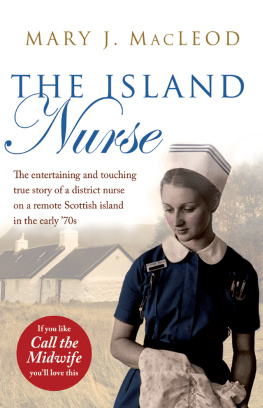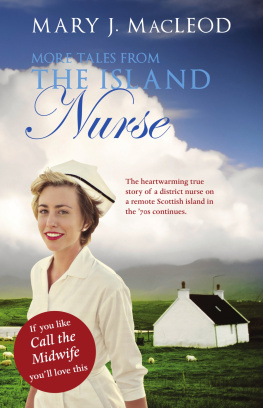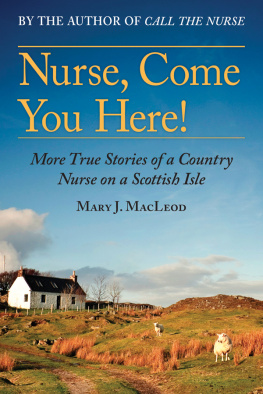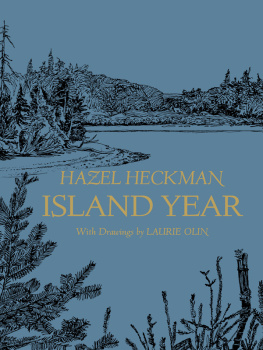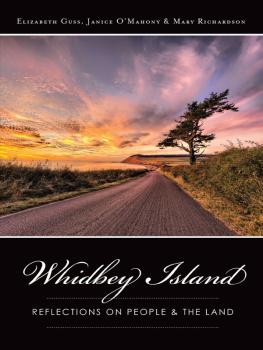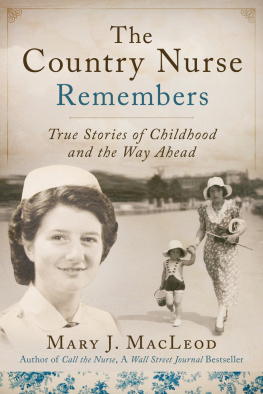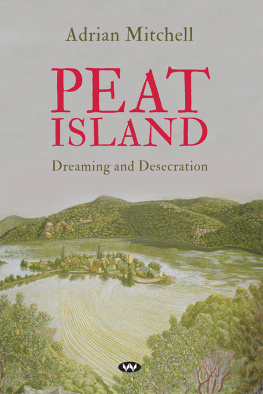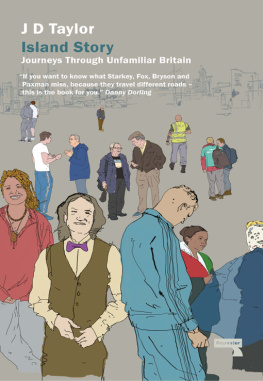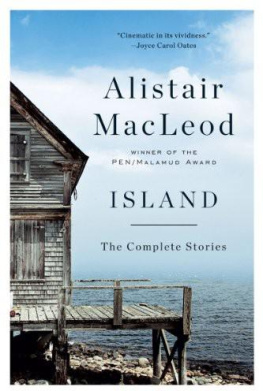Contents
THE ISLAND NURSE
Mary J. MacLeod

This ebook is copyright material and must not be copied, reproduced, transferred, distributed, leased, licenced or publicly performed or used in any way except as specifically permitted in writing by the publishers, as allowed under the terms and conditions under which it was purchased or as strictly permitted by applicable copyright law. Any unauthorised distribution or use of this text may be a direct infringement of the authors and publishers rights and those responsible may be liable in law accordingly.
Epub ISBN: 9781780572741
Version 1.0
www.mainstreampublishing.com
Copyright Mary J. MacLeod, 2012
All rights reserved
The moral rights of the author have been asserted
First published in Great Britain in 2012 by
MAINSTREAM PUBLISHING COMPANY
(EDINBURGH) LTD
7 Albany Street
Edinburgh EH1 3UG
ISBN 9781845967901
This book is a work of non-fiction based on the life, experiences and recollections of the author. In some cases, names of people, places, dates, sequences or the details of events have been changed to protect the privacy of others. The author has stated to the publisher that, except in such cases, not affecting the substantial accuracy of the work, the contents of the book are true.
No part of this book may be reproduced or transmitted in any form or by any other means without permission in writing from the publisher, except by a reviewer who wishes to quote brief passages in connection with a review written for insertion in a magazine, newspaper or broadcast.
A catalogue record for this book is available from the British Library
1 3 5 7 9 10 8 6 4 2
This book is dedicated to the memory of
Lilly Mae,
18 October 2008
Acknowledgements
I would like to thank my husband, children and friends for their interest and help (particularly my techno-wizard), and the people of the island for just being themselves.
PROLOGUE
Nostalgia
Yesterday, I dozed in the garden and dreamed of the remote Hebridean island of Papavray. Quite why would be hard to say, as it is many years since I lived there, and now I am sitting in the warmth of a Cornish summer. The wild, exposed islands of the north are a far cry from Cornwalls mild and gentle weather.
So why do I feel homesick when I listen to the Hebrides Overture? Why after so long do I smell peat smoke as it rises in blue snakes from the white chimneys of tiny croft houses? And feel the soft, damp air on my face and see again purple mountains, tumultuous seas and small, nameless islands in the bays?
Perhaps its the birdsong? The skylarks are singing now. When they arrived on Papavray, it was a sign that spring was here and the brief but beautiful summer was not far behind.
I have a sudden feeling of nostalgia and instead of the colours of the garden I see the outline of the islands, behind which the sun sets in a blaze of gold, turning the rocks to pinks and reds, and the sea to shimmering amber, before sinking to leave the quiet scene to the long northern twilight. I remember the sights, sounds and smells of Papavray so well that it might have been only yesterday that I lived there, instead of all those years ago.
We had long cherished a dream of something better than our frenetic lifestyle in the south of England: something gentler, uncluttered. Perhaps returning to the land of Georges forefathers?
For years it was just a dream, but this was a dream that came true!
ONE
On Papavray
It was a dreary December afternoon in 1970 as I struggled up the slippery path to the croft house on the hill above. My blue uniform and the silly hat that I had anchored with a very non-uniform scarf were no protection against the rain that was being hurled in from the sea by the blustery wind. I was cold and wet, but I knew that a cheery welcome and a warm fire awaited me, and after I had attended to my elderly patient her sister would bustle about to give me a wee cuppie.
I paused on the steep slope to get my breath, pretending, as I always did, that I was just admiring the view. And what a view! Even in this weather, the island was beautiful in its wild, rugged way.
Papavray is a remote Hebridean island about 20 miles long. Numerous lochs take great bites out of the coastline so that you are never out of sight of the sea. Today, that sea was turbulent with white-topped waves crashing noisily on the rocks, sending spumes of spray far into the air. The mountains on the neighbouring islands were softly clothed in floating tendrils of mist.
Above the noise of the wind, I could hear the excited voices of young children. Wiping the rain from my eyelashes, I glanced at my watch. The little school on a nearby promontory was breaking up for Christmas and, as arranged, my youngest son, Andrew, would soon be meeting me at my patients house. A year ago, when we moved here, he had joined the 14 other pupils of the islands only primary school and had already begun to acquire the sibilance and lilt of the gentle island tongue. He was making friends but had one big disadvantage he did not have the Gaelic. One does not speak Gaelic one has the Gaelic. Or not, in our case! It was 1970, but the more remote Scottish islands still retained this as their first language. Most of my older patients spoke a rather quaint form of English as their second language, while some spoke only their native tongue.
I climbed on up to the croft house above and knocked on the door. Of course I had been observed from the moment my car drew up on the narrow track far below, but I still found it difficult to just walk into peoples houses in the manner of the locals. Calling a greeting, I stepped inside and removed my sodden coat, hat and gloves. I even took my shoes off, as they both contained a small lake of rainwater. I had not yet completed a year as the district nurse on Papavray, and I still had some notion of looking smart when on my rounds. Later, I would learn that welly boots were better than shoes and that umbrellas were useless in the wind but good as walking sticks on slippery slopes and for fending off territorially minded dogs.
Come away in, Nurse, and warm yourself by the fire. Indeed, its terrible weather were having the day. This was Mary-Anns delightful greeting as I dripped my way inside.
Minnie, my dear old patient, was in the downstairs bedroom. Ach, Nurse. Youll be gie wet. And so busy you are, and me here needin a bath. I usually got her up in the mornings to sit by the fire, but today was bed-bath day.
Im sorry to be so late, Minnie.
Ach, Im no mindin. I have my wireless.
Minnie was almost completely paralysed as the result of a stroke some years previously, but she never complained. Over time, we became much more than nurse and patient, and when she died I felt that I had lost a friend. On this December day, we laughed and chatted as I worked, and after a while I heard Andrews arrival. The timid knock and shy Hello were followed by much motherly tutting over his wet things. Mary-Ann loved children and, like so many island women, was never happier than when fussing over them with cocoa and clootie dumpling, so Andrew was only too happy to accompany me on my rounds when necessary. The patients and their relatives plied him with all manner of goodies. I believe they thought that I didnt feed him very well. I was English, and the islanders had little regard for fancy English food. Good old-fashioned stodge was what had kept them full for generations.
Next page
